US Company Formation and Tax Filing: Federal vs. State Requirements
Published on: February 9, 2025

Starting a business in the US involves company formation at the state level and tax compliance with federal and state authorities. The process varies depending on your business structure (LLC, Corporation, etc.) and location.
At ICT, we provide US business registration and tax compliance training to help entrepreneurs and professionals navigate complex requirements.
Step 1: Choosing a Business Structure
Entity Type | Key Features | Best For |
Sole Proprietorship | Simplest form, no formal registration | Freelancers, solo entrepreneurs |
LLC (Limited Liability Company) | Personal asset protection, flexible taxation | Small to mid-sized businesses |
C-Corporation | Separate legal entity, double taxation | Startups seeking investors |
S-Corporation | Pass-through taxation, shareholder limits | Profitable small businesses |
💡 Tip: Most small businesses choose LLCs for liability protection and tax flexibility.
Step 2: Registering Your Business
- A) Federal Requirements
- Obtain an EIN (Employer Identification Number)
- Free from the IRS website(required for hiring employees & taxes).
- Register with the IRS(if hiring employees) for payroll taxes.
- B) State-Level Registration
- File Formation Documents
- LLCs:Articles of Organization
- Corporations:Articles of Incorporation
- Pay State Filing Fees(50−50−500, varies by state).
- Obtain Business Licenses(industry-specific permits may apply).
📌 Delaware & Wyoming are popular for their business-friendly laws.
Step 3: Understanding US Tax Obligations
Federal Taxes
Tax Type | Who Files? | Due Date |
Income Tax | All businesses | Apr 15 (or Oct 15 with extension) |
Self-Employment Tax | Sole proprietors, partners | Quarterly estimated payments |
Payroll Tax | Employers | Monthly/Semi-weekly |
State Taxes
- State Income Tax(except TX, FL, NV, etc.)
- Sales Tax(if selling taxable goods/services)
- Franchise Tax(annual fee in some states like CA, DE)
⚠️ Penalties: Late filings can incur 5-25% fines + interest.
Step 4: Annual Compliance Requirements
Entity | Federal Filing | State Filing |
LLC | Form 1065 (Partnership) or Schedule C (Sole Prop) | Annual report + fee |
C-Corp | Form 1120 | Franchise tax report |
S-Corp | Form 1120S | Varies by state |
💡 Pro Tip: Use accounting software (QuickBooks, Xero) to track deductions and simplify filings.
ICT’s US Business & Tax Training Programs
Our expert-led courses cover:
✅ US Company Formation (LLC vs. Corporation)
✅ Federal & State Tax Compliance
✅ IRS Audit Defense Strategies
🔗 Enroll Now: ICT US Business Courses
Key Takeaways
Choose the right business structure (LLC is most common).
Register at both federal & state levels.
File tax returns on time to avoid penalties.
Consider hiring a CPA for complex cases.
📞 Need expert help? Contact ICT US Business Advisors today!
Categories
Recent Posts
-
How to Register for GST, PST, and NTN in Pakistan: A Beginner's Guide
-
How to Register for GST, PST, and NTN in Pakistan: A Beginner's Guide
-
Income Tax Filing and Refund Course: Become an FBR-Certified Tax Expert
-
Protecting Your Brand: Trademark Registration Process in Pakistan
-
Company Registration and Incorporation in Pakistan: Everything You Need to Know
-
How to Apply for an ITIN, EIN, and Trademark Registration in the USA
-
Monthly GST Return Filing in Pakistan: Deadlines, Process, and Tips
-
Complete Guide to Income Tax Return Filing in Pakistan: Step-by-Step Process
-
Start Your Career as a Tax Consultant
-
Tax Planning for Freelancers in Pakistan: A Complete Guide
-
Understanding Pakistan’s Taxation System: A Guide for Small Businesses
-
Tax Return Filing Courses in Lahore, Karachi, Islamabad
-
US Company Formation and Tax Filing: Federal vs. State Requirements
-
Excise Tax Registration and Return Filing in the UAE: Simplified Process
-
Understanding Transfer Pricing and Tax Audits in the UAE: Key Insights
-
How to Avoid Common Mistakes in Income Tax Return Filing in Pakistan
-
VAT Registration and Corporate Tax Services in the UAE: A Comprehensive Guide
-
How the UAE’s Corporate Tax Impacts Multinational Companies
-
Why Intellectual Property Protection is Crucial for Businesses in Pakistan
-
USA Taxation 101: Key Changes for the Upcoming Tax Season
-
Monthly GST Return Filing in Pakistan: Compliance Guide to Avoid Penalties
-
Monthly GST Return Filing in Pakistan: Deadlines, Process, and Tips

